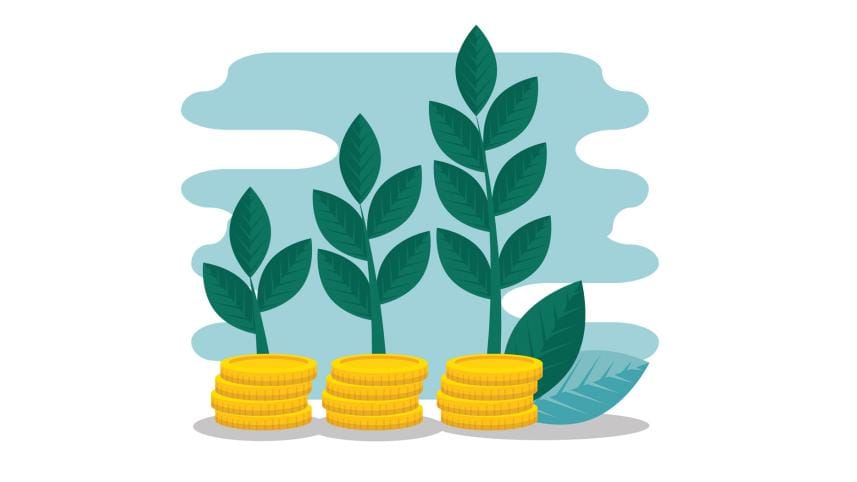The path to green projects: Borrowers’ experiences and insights

Many entrepreneurs are interested in making their projects greener, thanks to higher sustainable financing from both banks and non-bank financial institutions year after year. However, there should be easy and simple conditions for getting the loans so that entrepreneurs from all sectors can be encouraged to build green factories.
Most of the sustainable finance is directed towards green technology and renewable energy, but the lending amount is still low compared to the country's needs, according to Syed Mahbubur Rahman, Managing Director and CEO of Mutual Trust Bank.
The interest rate gap between other loans and green finance is almost zero, causing people to lose interest in sustainable financing products. The central bank's refinancing schemes are comparatively better than those of foreign-financed products, and the conditions are also lighter, so the scope of the fund should be increased.
People's awareness of sustainable financing is also limited, but trade bodies are now working on it, he said. Citing the global climate risk index, he mentioned that Bangladesh is the 7th most vulnerable country to climate change, so there should be an increased focus on sustainable finance.
According to Bangladesh Bank data, lenders provided loans of Tk 36,694 crore in sustainable finance, which accounted for 13.77 percent of the total loans in the banking sector during the January to March period of 2023.
Keep Reading -
- Sustainable finance for greener future
- Why sustainable Finance?
- We are committed to achieving net zero emissions - Mashrur Arefin
- Working diligently to introduce green bonds - Arif Quadri
- We aim for a significant national impact - Kanti Kumar Saha
- The future will be green - Humaira Azam
- The path to green projects: Borrowers' experiences and insights
- Sustainability leads to increased revenue - Mirza Elias Uddin Ahmed
- Sustainability is the ultimate future - Mosleh Uddin Ahmed
- Pro-people, pro-planet, and pro-society - Selim R. F. Hussain
"We have a long way to go," he added.
Banks should also introduce new products related to sustainable financing to support the green economy, as it is a costly investment, and entrepreneurs need the lending, added Rahman, who is also a former chairman of the Association of Bankers, Bangladesh Limited.
According to BB data, most of the sustainable funds went to the agriculture sector, amounting to Tk 9,387 crore. In socially responsible financing and working capital for green projects, banks and NBFIs lent Tk 7,969 crore and Tk 7,343 crore, respectively.

Plummy Fashions ventured into green finance in 2014 when the concept of sustainable financing was still novel in the country, particularly within the RMG sector. Fazlul Hoque, managing director of Plummy Fashions, pointed out that the green financing came from the central bank's refinancing fund, resulting in a comparatively low-interest rate for the loan. During that period, the prevailing interest rate in the banking sector ranged from 14 to 15 percent, whereas the company secured the loan at a 9 percent interest rate. Hoque remarked, "So, it was appealing at that time due to the 6 to 7 percent interest rate difference."
He further noted that without the availability of the loan, the company would have had to abandon the project, as it was a financially burdensome undertaking. Building a green factory requires substantial investment, and high-interest rates can pose significant challenges.
"A green factory provides satisfaction as it ensures responsible business practices," he added. "It also enhances the company's international image, thereby expanding marketing opportunities."
Currently, the interest rate differential between general loans and green financing is minimal. Moreover, the requirements and conditions for green financing are more stringent, according to Hoque, who also serves as a former president of BKMEA.
In February of the previous year, Green Textile Limited Unit 4, a joint venture between the Epic Group and Envoy Legacy of Bangladesh, achieved a score of 104 out of 110, the highest globally. As a result, it earned the distinction of being the world's highest-rated platinum green factory, topping the list of the international green building certification agency. Bangladesh now boasts both the highest-rated and the highest number of green garment factories globally.
In recent years, numerous factories, not limited to RMG companies, have expressed a growing interest in making their facilities more environmentally friendly. In 2021, Pran Agro Ltd, a subsidiary of Pran-RFL Group, raised funds amounting to Tk 150 crore by issuing green bonds, intending to utilize the proceeds for activities such as recycling wastewater, waste decomposition, and promoting land preservation through contract-based organic farming.
During the same year, Sajida Foundation introduced the country's first-ever green zero-coupon bond, valued at Tk 100 crore, to finance various environmentally friendly and energy-efficient initiatives targeting the micro-credit and SME clients of Sajida Foundation.




 For all latest news, follow The Daily Star's Google News channel.
For all latest news, follow The Daily Star's Google News channel.
Comments